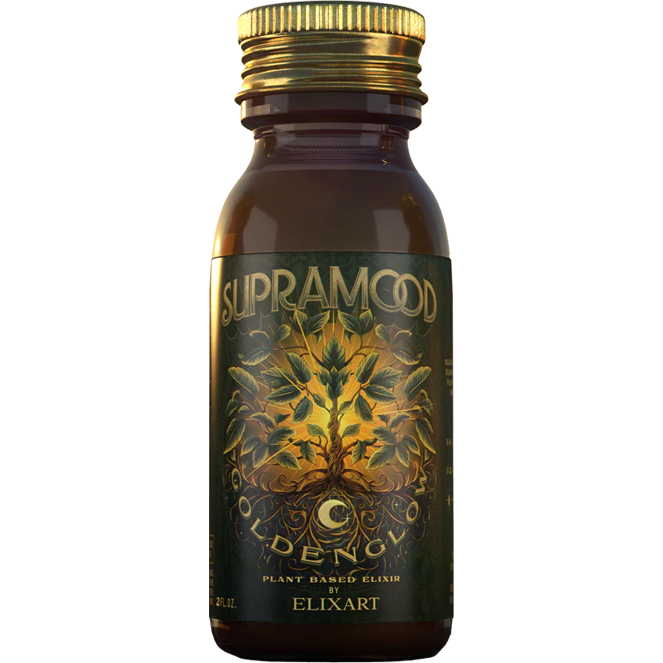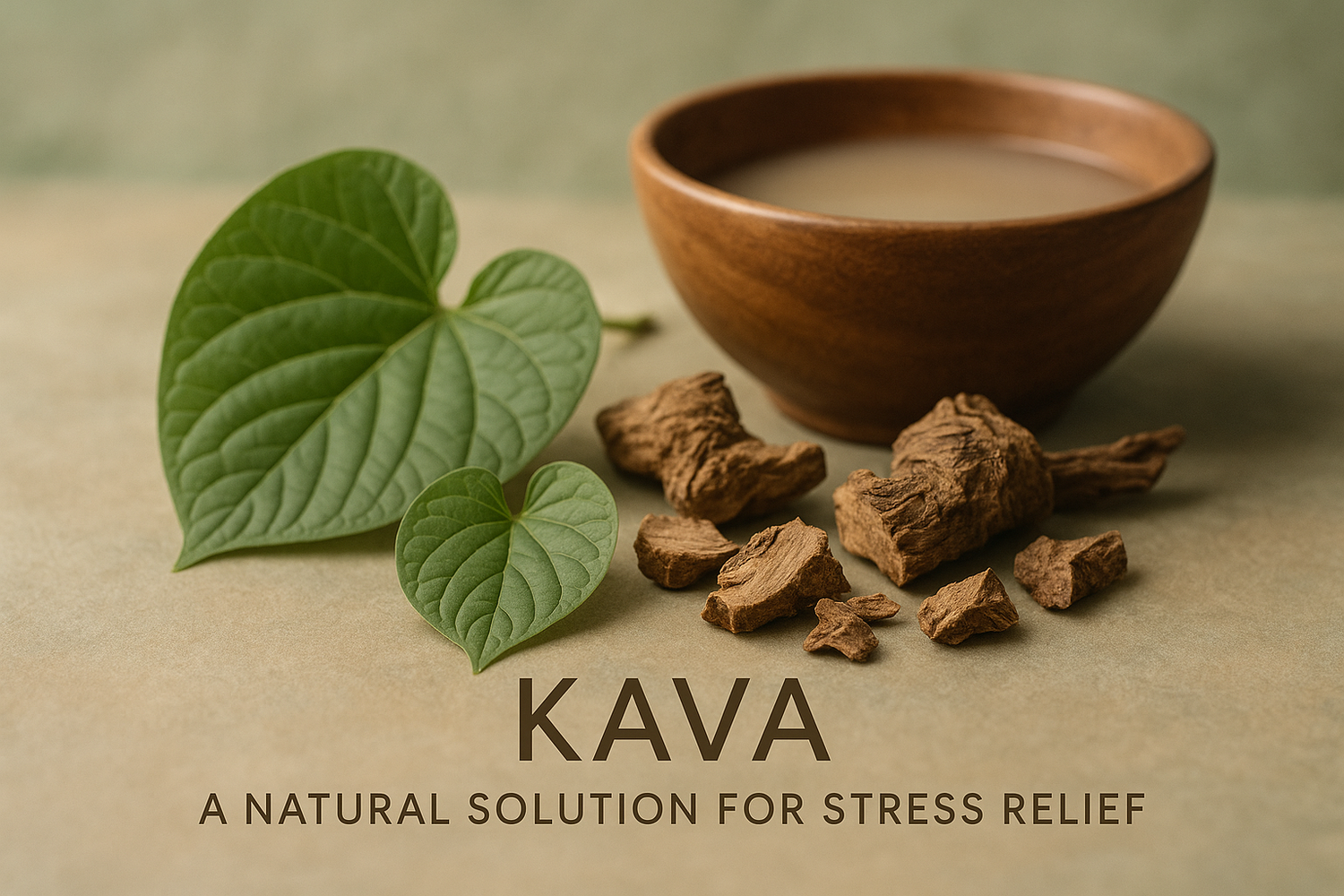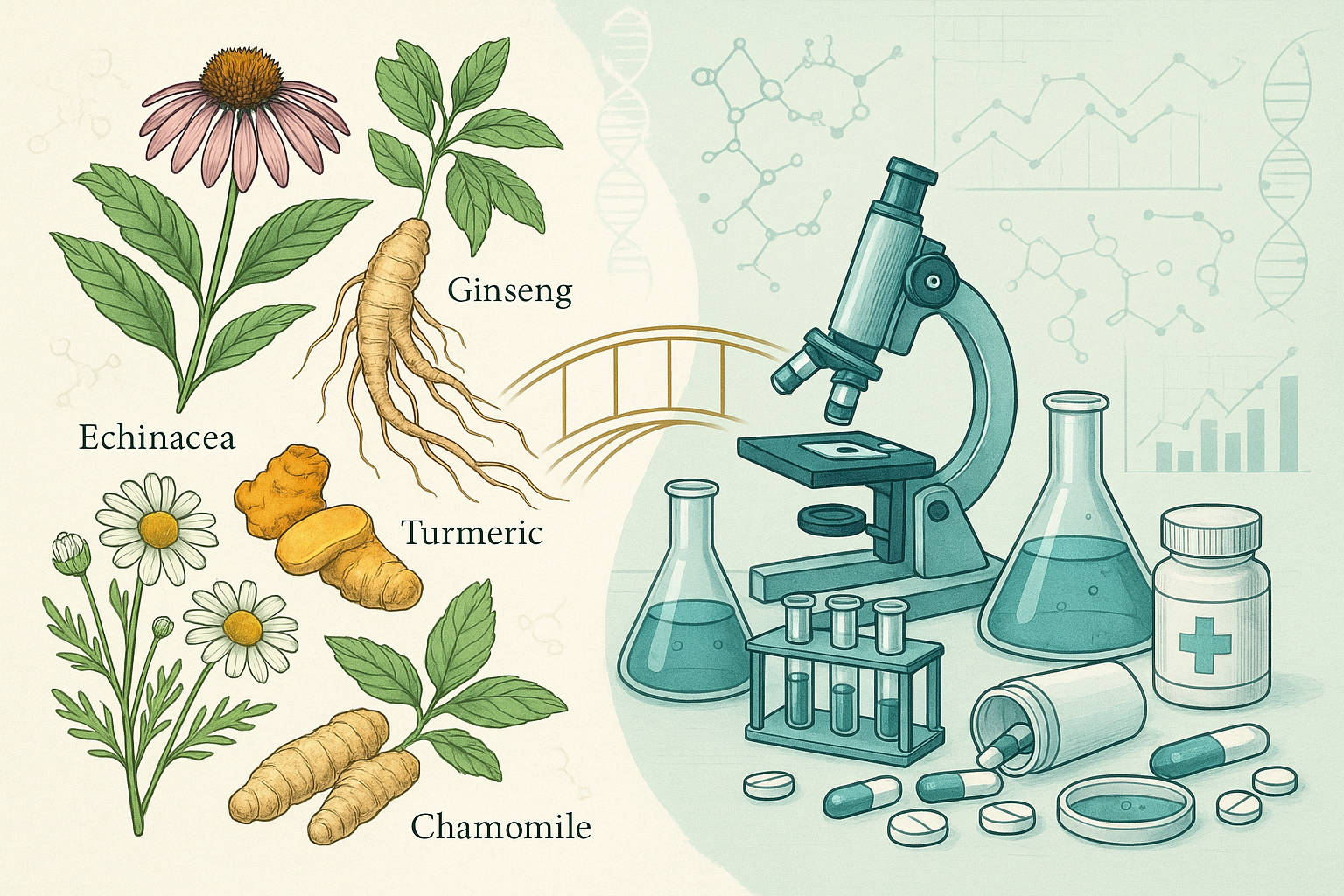Kava is a plant that originates from the South Pacific and is well-known for its ability to reduce stress naturally. In today's fast-paced world, where stress and anxiety levels are higher than ever, it's essential to find effective and safe methods of dealing with these problems. Kava shows promise as a solution by utilizing its active components called kavalactones to encourage relaxation and tranquility.
In this article, we will:
- Explore the scientific basis behind Kava's stress-relieving properties.
- Examine the existing research on how effective it is.
- Understand any potential safety issues associated with its use.
- Provide guidelines for using it safely.
Thesis statement: Kava can be a valuable tool in managing stress and anxiety, offering a well-rounded approach to improving overall well-being.
Understanding Stress and Anxiety
Stress and anxiety are often used interchangeably, but they are distinct experiences with overlapping symptoms. Stress is a natural response to a perceived threat or challenge, triggering the body's "fight or flight" mechanism. Common symptoms of stress include:
- Increased heart rate
- Muscle tension
- Sweating
- Irritability
- Difficulty concentrating
Anxiety, on the other hand, is a feeling of worry, nervousness, or unease about something with an uncertain outcome. While stress is usually a reaction to an external cause, anxiety often persists even in the absence of immediate stressors. Symptoms of anxiety can encompass:
- Constant worry or fear
- Restlessness
- Fatigue
- Difficulty sleeping
- Panic attacks
The underlying causes of stress can range from daily hassles like traffic jams to significant life changes such as job loss or relationship issues. These stressors can trigger a cascade of physiological responses designed to help you cope in the short term. However, chronic exposure to stress without adequate coping mechanisms can lead to persistent anxiety.
Chronic anxiety may develop due to several factors:
- Genetics and family history
- Imbalances in brain chemistry
- Traumatic experiences
- Chronic medical conditions
The escalation from temporary stress to chronic anxiety underscores the importance of effective stress management strategies. Understanding these dynamics sets the stage for exploring natural solutions like Kava for mitigating these issues.
The Impact of Stress and Anxiety on Your Well-being
Prolonged stress can have significant negative effects on your mental health. Chronic stress often leads to an increased risk of depression and burnout. Symptoms such as persistent sadness, loss of interest in daily activities, and emotional exhaustion are common indicators that stress is taking a toll on your mental well-being.
Anxiety disorders also impact cognitive function and physical vitality. They can impair your ability to concentrate, make decisions, and remember important information. Physically, anxiety may manifest through symptoms like fatigue, muscle tension, headaches, and digestive issues.
Detrimental Effects of Prolonged Stress:
- Increased Risk of Depression: Persistent stress depletes neurotransmitters like serotonin and dopamine, leading to depressive symptoms.
- Burnout: Emotional and physical exhaustion from prolonged stress affects productivity and overall life satisfaction.
Cognitive and Physical Toll of Anxiety Disorders:
- Impaired Cognitive Function: Difficulty concentrating, making decisions, and retaining information.
- Physical Symptoms: Fatigue, muscle tension, headaches, digestive problems.
Understanding the significant impact of stress and anxiety on both mental health and physical well-being underscores the importance of effective management strategies such as Kava.
1. The Science Behind Kava's Stress-Relieving Properties
To truly understand how Kava can help with stress, it's important to know the science behind it. The main active components in Kava are called kavalactones. These kavalactones play a crucial role in changing brain chemistry to make us feel more relaxed and calm.
Key Scientific Principles
Kavalactones are what make Kava so effective at reducing stress. They interact with different chemicals in the brain called neurotransmitters. Neurotransmitters are responsible for sending messages between nerve cells. By affecting these neurotransmitters, Kava helps regulate our mood and anxiety levels, making it a great natural option for stress relief.
1.1. How Kava Works with Neurotransmitters to Make Us Relax
GABA Receptors: One of the main ways that Kava helps with anxiety is by affecting GABA (gamma-aminobutyric acid) receptors. GABA is a neurotransmitter that slows down activity in our brain, which helps us feel calmer. By increasing the effects of GABA, Kava promotes relaxation and reduces anxiety.
Serotonin Levels: Besides its impact on GABA receptors, Kava also influences serotonin levels in the brain. Serotonin is often called the "feel-good" neurotransmitter because it affects our mood, sleep, and behavior. When serotonin levels are higher, we tend to feel happier and less anxious.
Dopamine Pathways: Kavalactones can also interact with dopamine pathways, which are involved in pleasure and reward systems in our brain. By changing how dopamine works, Kava may be able to ease stress symptoms and improve our overall well-being.
Summary of How It Works
- Enhancement of GABAergic Activity: Helps calm down our nervous system.
- Modulation of Serotonin Levels: Boosts mood and reduces anxiety.
- Influence on Dopamine Pathways: Eases stress and promotes well-being.
Understanding these mechanisms gives us a better idea of why many people use Kava as a natural way to deal with stress and anxiety. Its ability to affect these important neurotransmitters shows its potential as an effective tool for taking care of our mental health and finding relaxation.
2. Research on the Use of Kava for Stress Relief
Summary of Key Findings
Recent clinical studies have shown that Kava can help with managing stress and anxiety. In these studies, people who consumed Kava reported feeling less anxious compared to those who took a fake treatment (placebo). One study published in the Journal of Clinical Psychopharmacology found that Kava extract helped reduce anxiety in individuals with generalized anxiety disorder.
Another study found that Kava not only reduces anxiety but also improves sleep and mood. The active compounds in Kava, called kavalactones, seem to work by affecting the brain's chemistry related to stress.
Comparative Analysis with Other Herbal Remedies
When compared to other popular herbal remedies like Valerian root or Chamomile, Kava stands out for its strong anxiety-relieving effects. While Valerian root is commonly used for its ability to promote sleep and Chamomile for its mild calming effects, Kava tends to provide more noticeable relief from severe anxiety symptoms.
Here's a quick comparison:
- Valerian Root: Often used for insomnia and mild anxiety.
- Chamomile: Known for its gentle calming effects.
- Kava: Shown to be more effective in clinical settings for reducing moderate to severe anxiety.
These studies highlight the potential of Kava as a natural remedy for stress and anxiety. However, it's important to be cautious when using it due to safety concerns.
3. Exploring the Safety Profile of Kava
The safety of Kava has become a concern because of reports linking it to possible liver damage and toxicity. Some people have suffered from serious liver problems, leading regulatory agencies in several countries to issue warnings or restrictions on Kava products.
Understanding Worries About Liver Damage
- Liver damage caused by chemicals is known as hepatotoxicity. In the case of Kava, worries started when a few severe liver injury cases were reported in different countries. These cases prompted closer examination and studies on the safety of Kava.
Looking at Current Evidence
- Recent studies indicate that using Kava responsibly, especially by following recommended doses and quality standards, carries very little risk for most individuals.
- Experts stress the importance of choosing high-quality Kava products that are free from contaminants like mold or incorrect plant parts, as these factors could increase the chances of liver problems.
Expert Opinions on Safe Use
- Healthcare professionals often recommend speaking with a doctor before adding Kava to your routine, particularly if you already have liver issues or are taking other medications.
- Using reputable brands that follow strict quality controls can help reduce many of the risks associated with consuming Kava.
It's crucial to use Kava responsibly in order to enjoy its benefits while minimizing any potential health hazards.
4. Using Kava Responsibly: Guidelines and Precautions
Consulting a Healthcare Provider
Before adding Kava to your stress management routine, it's important to consult a healthcare provider. This is especially crucial if you're currently on prescription medications because Kava can interact with certain drugs and cause harmful effects.
Practical Tips for Safe Usage
To use Kava safely, follow these practical guidelines:
- Dosage Recommendations: Start with the lowest effective dose. For most people, this is between 70 to 250 mg of kavalactones per day.
- Form of Kava: Choose commercially prepared products like capsules or tea that meet quality standards.
- Duration of Use: Use Kava for short periods (up to three months) to minimize potential risks like liver damage.
- Monitor Your Health: Regularly check for any unusual symptoms such as tiredness or yellowing of the skin, which could be signs of liver problems.
Precautions for Special Populations
Certain groups need to be extra careful when considering Kava as a supplement:
- Pregnant/Breastfeeding Individuals: Avoid using Kava because there isn't enough evidence on its safety during pregnancy and breastfeeding.
- Pre-existing Liver Conditions: If you have liver issues, it's best to avoid using Kava as it can be harmful to your liver.
- Parkinson's Disease Patients: Since Kava may affect dopamine levels, it is advised that those with Parkinson's disease avoid its use.
By following these guidelines and being cautious, you can effectively use Kava as part of your stress relief strategy while minimizing potential risks.
5. Other Approaches to Stress Relief
Combining Kava with other stress relief strategies can amplify its effectiveness. Consider incorporating these complementary techniques into your routine:
Mindfulness Meditation
Practicing mindfulness helps you stay present and reduces anxiety. Simple breathing exercises or guided meditation sessions can be powerful tools.
Regular Exercise
Physical activity releases endorphins, which naturally elevate mood and reduce stress. Activities like yoga, jogging, or even a brisk walk can be beneficial.
Other herbal remedies with anxiolytic properties might also be worth exploring:
- Valerian Root: Known for its calming effects, Valerian root is often used to improve sleep quality and reduce anxiety.
- Chamomile: Widely consumed as tea, Chamomile has mild sedative properties that can help with relaxation and stress relief.
Integrating these methods with Kava could provide a holistic approach to managing stress effectively.
Embracing a Balanced and Calm Lifestyle with the Help of Kava
Adopting a holistic approach to stress management can significantly enhance the positive effects of a Kava lifestyle. Integrating practices such as maintaining healthy sleep patterns is crucial, as quality sleep allows the body to recover and manage stress more effectively. Nurturing social connections also plays a key role; engaging in meaningful relationships can provide emotional support and reduce feelings of isolation.
Key elements to consider:
- Healthy Sleep Patterns: Aim for 7-9 hours of restful sleep each night. Establishing a regular sleep schedule and creating a calming bedtime routine can help improve sleep quality.
- Nurturing Social Connections: Spend time with family and friends, engage in community activities, or join social groups that share your interests. Building strong relationships can provide essential emotional support.
- Professional Support: Seeking guidance from healthcare professionals, therapists, or counselors can offer personalized strategies for managing stress and anxiety.
Kava serves as a valuable tool in promoting overall well-being in today's hectic world. When you incorporate it thoughtfully into your lifestyle, it can help reduce stress and create a sense of calmness. By balancing Kava usage with other methods of relieving stress, you're ensuring that you have a complete approach to taking care of both your mental and physical health.
FAQs (Frequently Asked Questions)
What is Kava and how does it relate to stress relief?
Kava is a natural solution for stress relief that has gained relevance in today's fast-paced world. In this article, we will explore the science behind Kava's stress-relieving properties, examine the research on its effectiveness, understand the potential safety concerns, and provide guidelines for its safe use.
What are the common symptoms of stress and anxiety?
Stress and anxiety are characterized by common symptoms such as increased heart rate, rapid breathing, restlessness, and difficulty concentrating.
How does prolonged stress impact mental and physical health?
Prolonged stress can lead to detrimental effects on mental health, increasing the risk of depression and burnout. Anxiety disorders can also take a toll on cognitive function and physical vitality.
What are kavalactones and what role do they play in Kava's stress-relieving properties?
Kavalactones are the active compounds in Kava that modulate brain chemistry to induce relaxation and calmness, making them key to Kava's effectiveness as a stress reducer.
What are the key findings from recent clinical studies on the efficacy of Kava for stress relief?
Recent clinical studies have shown promising results regarding the efficacy of Kava in reducing stress and anxiety symptoms. These findings will be compared with those of other popular herbal supplements used for similar purposes.
What are some guidelines and precautions for using Kava responsibly?
It is important to consult a healthcare provider before incorporating Kava into your stress management routine. Practical tips for safe usage include appropriate dosage recommendations and potential risks associated with long-term use. Certain groups, such as pregnant/breastfeeding individuals or those with pre-existing liver conditions or Parkinson's disease, should be aware of specific precautions when considering Kava as a supplement.







Leave a comment
This site is protected by hCaptcha and the hCaptcha Privacy Policy and Terms of Service apply.